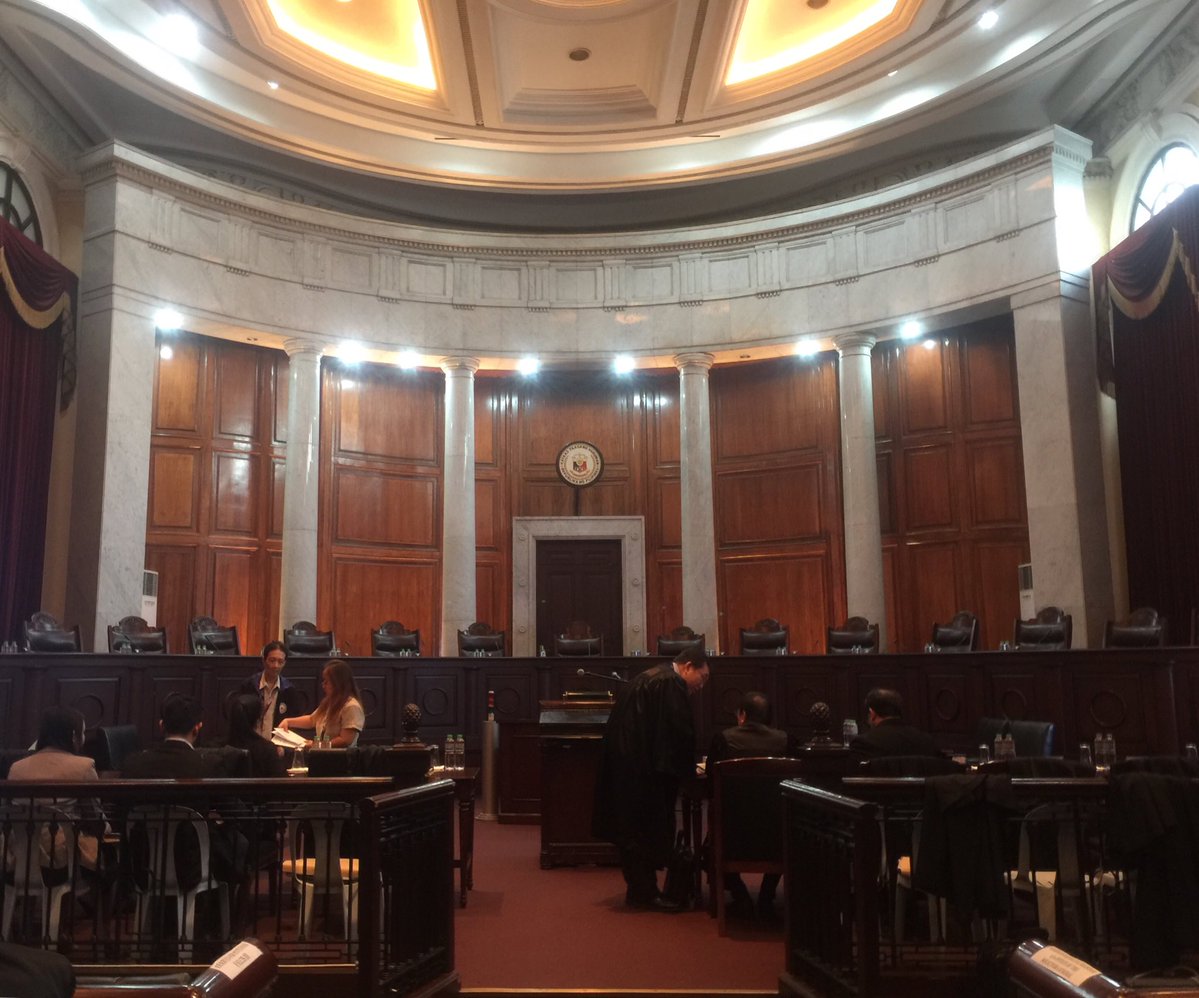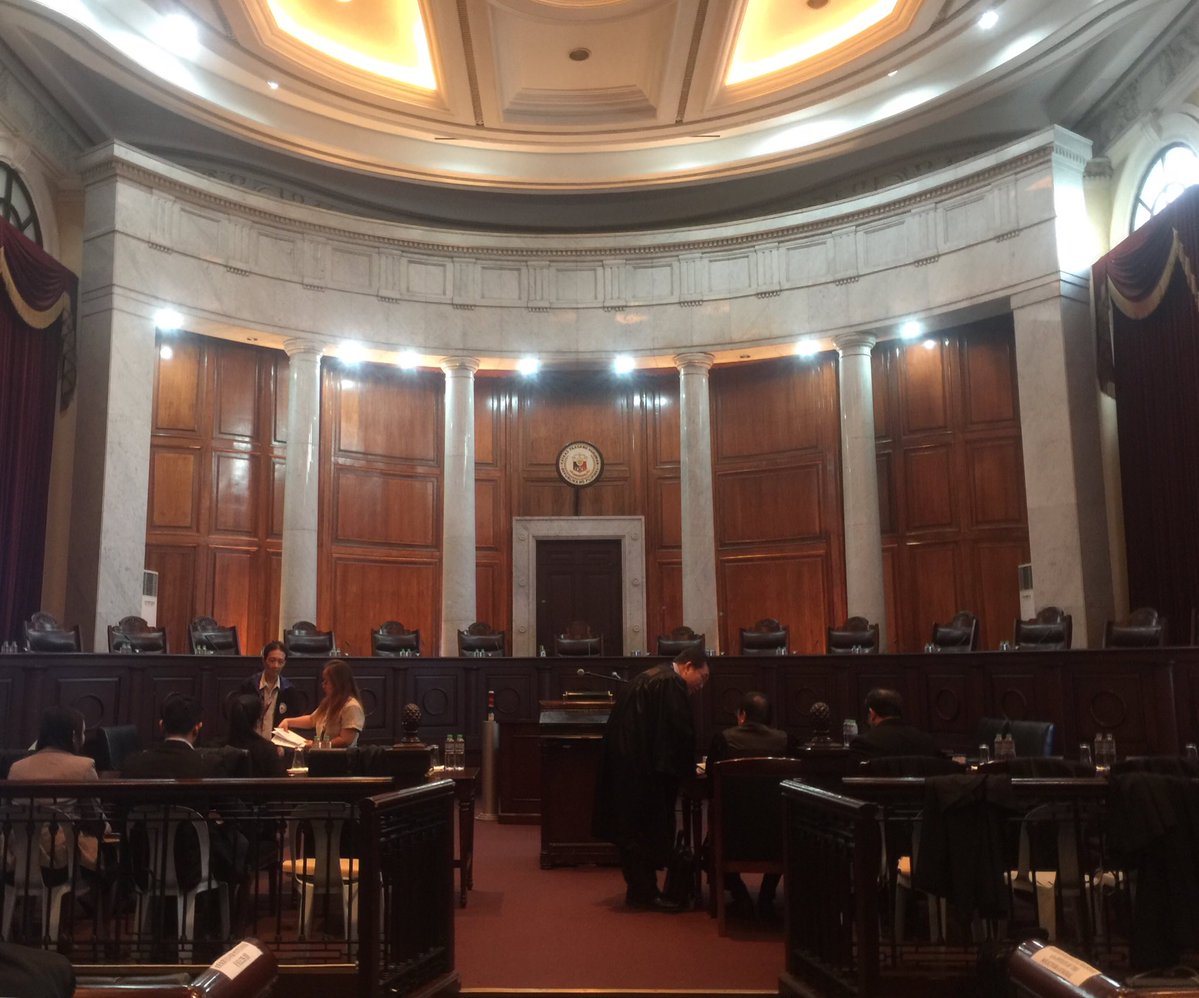
46(4) -concealment by a partner of his or her sexuality is a ground for annulment of marriage;
55(6) -homosexuality or lesbianism per se of a partner is a ground for legal separation | via @SCPh_PIO
Calida: definitely no your Honor | via @SCPh_PIO
Calida: not deemed cured; in fact we filed a supplemental petition dealing with this matter | via @SCPh_PIO
Calida: but Petitioners want to declare Art 1 and 2 of Family Code unconsti | via @SCPh_PIO
Calida: The harm is that the constitution and our laws do not allow such | via @SCPh_PIO
Calida: There is a constitutional construction
Leonen: Consti now, what does it say? Between a man and woman?
Calida: Doesn't have to be defined, it is the big elephant in this room. | via @SCPh_PIO
Calida: Before we discuss that, petitioners must first hurdle procedural issues
Leonen: But precisely that is what transcendental interest is about | via @SCPh_PIO
Calida although not yet the Solicitor General at that time, asserts transcendental importance does not cure procedural flaws | via @SCPh_PIO
Calida: I stand by my answers, your Honor | via @SCPh_PIO
Calida: But there is now a case in this court | via @SCPh_PIO
Calida: Yes | via @SCPh_PIO
Leonen: why is that portion the tradition and not the other portions? Please cover that in your memoranda | via @SCPh_PIO
Calida: no need to mention because everybody knows marriage is between a man and a woman
Leonen: I don't think "everybody knows" because there were already LGBTs then | via @SCPh_PIO
Calida insists no need to mention the same | via @SCPh_PIO
Calida: Consti clear that same sex couple cannot be married | via @SCPh_PIO
Calida agrees that there are infertile couples.
Leonen: And that is not the marriage in the Consti?
Calida says there are not many of them (infertile couples) | via @SCPh_PIO
Calida: Those are not my words; will cover such in our memo | via @SCPh_PIO
Calida: State protects institution of marriage between a man and a woman | via @SCPh_PIO
Calida takes time to answer, reading something.
Calida: Will just put the same in our memo | via @SCPh_PIO
Calida: In some instances, procreation may not be feasible because of health conditions of either or both parties | via @SCPh_PIO
Calida: They are capable of loving but not capable of procreating | via @SCPh_PIO
Calida: Let the people decide, your Honor through their elected representatives | via @SCPh_PIO
Calida: Yes, your Honor | via @SCPh_PIO
Calida: If allowed by a new Constitution, we will have to change definitions | via @SCPh_PIO
Calida: w/o changing consti & laws there will be a big problem
Calida: there aren't any statistics yet | via @SCPh_PIO
Calida assures they will cover such in their memo | via @SCPh_PIO
Calida: I have not read such bill
Calida: Yes | via @SCPh_PIO
Calida says he is unaware and he can only speak for himself - raised by heterosexual couples | via @SCPh_PIO
Gatdula: Not necessarily | via @SCPh_PIO
Gatdula: Situate vis a vis with Art III: Bill of rights, not all relationships are mentioned in the Consti, except that one particular relationship: marriage is mentioned | via @SCPh_PIO
Gatdula: The reason we are taking this seriously is because we know that law affects the behavior of people | via @SCPh_PIO
Gatdula: A State needs citizens that are productive, that are stable, that tend to blend well within the body politic. But I also concede that this is Court of law and not of fact | via @SCPh_PIO
Gatdula: but these will not result in procreation | via @SCPh_PIO
Gatdula: No; asserts the matter is actually better argued in the lower courts | via @SCPh_PIO









